Yep, I'm an experienced baker, since the '90's. I do a lot of breads weekly mostly sourdoughs in the German French traditions. As people have said, you can make sourdough from just about anything - potatoes, unsulfured raisins, grapes, whatever. Really, nothing more than flour and water will work, though it takes some time for your particular environment to settle out its own ecology, so you have the culture you want and it is effectively outcompeting unwanted species of yeasts and bacterias.
A few recently. A "Sonnenblume Schrotbrot," which has no flour - just cracked rye of varying coarsenesses (I mill at home), roasted sunflower seeds, sourdough and a touch of barley malt syrup ("inactive").
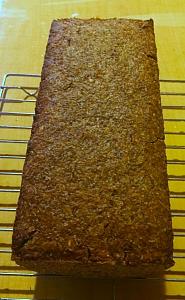
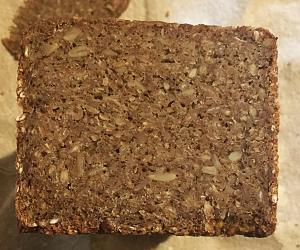
A "Frankenlaib," a rustic sourdough seen in Franconia:
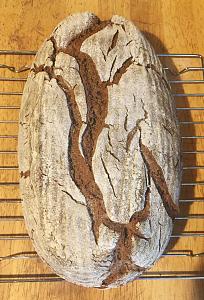
A Kasseler, which is one of the most common sourdoughs seen throughout German households. This one is "würzig," which implies spicier or more strongly flavored. It has a higher degree of whole rye flour.
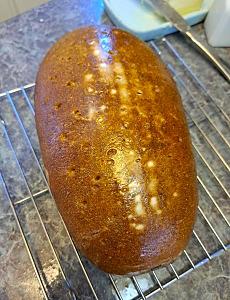
Just some random others.
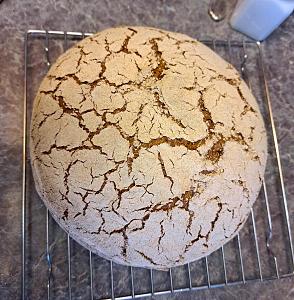
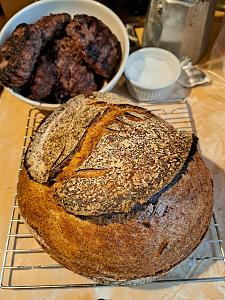
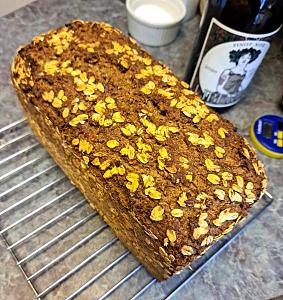
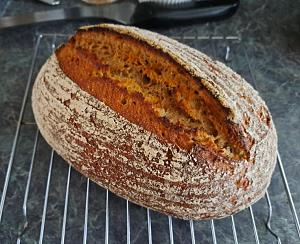
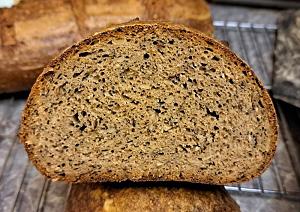
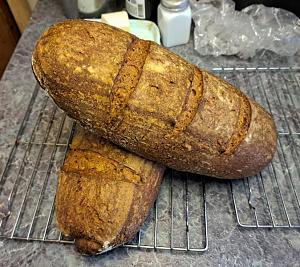
















 Reply With Quote
Reply With Quote

















